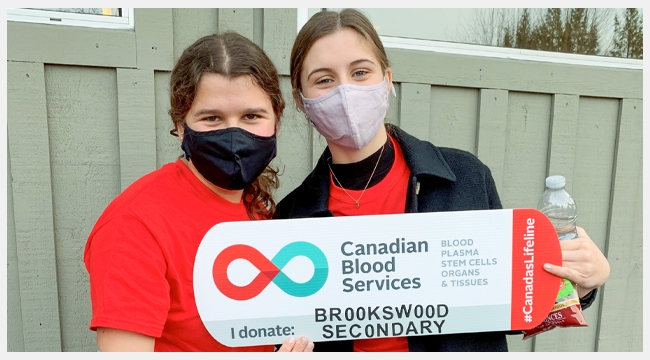Think you can’t donate blood or plasma? Check to be sure, to help us help patients
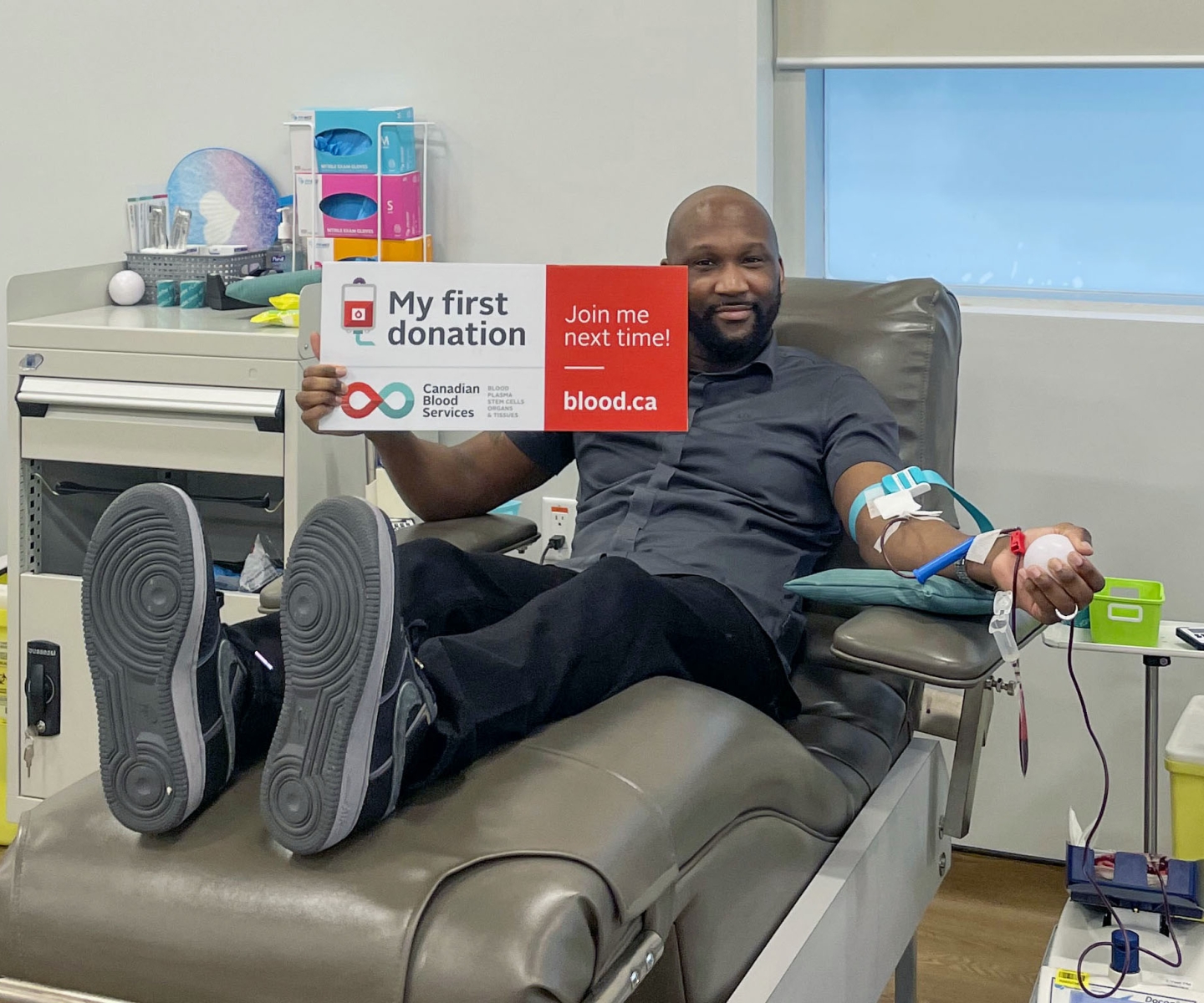
Our blood and plasma donor eligibility criteria are updated regularly. And it’s important to be aware of myths, too.
Currently, 1 in 2 Canadians are eligible to give blood, yet only 1 in 76 actually do. Sometimes, the barrier is a simple misunderstanding. For example, did you know you can still donate after getting a tattoo? Or that many people with diabetes are now eligible to donate?
Never donated or tried to? Our two-minute eligibility quiz is the perfect place to start!
Also, sometimes, people who were not eligible in the past are eligible now, but don’t know it. Our eligibility criteria are updated regularly. An update can put you back with the “1 in 2” who are eligible — even if you thought you could never donate again.
Read on for important eligibility news and the facts about some common myths. New donors of all backgrounds and identities are needed, so please join us if you can.
1. All restrictions related to time spent in countries affected by ‘mad cow’ disease have been lifted

For decades, thousands of people in Canada were unable to donate blood or plasma because of the measures in place to stop the transmission of variant Creutzfeldt Jakob disease (vCJD) ― commonly known as the human form of ‘mad cow’ disease.
The last of those restrictions were removed in December 2023, allowing people who had lived or spent time in the UK, the Republic of Ireland or France to donate (if they met all other eligibility criteria).
The change followed an earlier update in 2022, which lifted restrictions for people who had lived in many other western European countries as well as Saudi Arabia.
2. Travelled to an area where malaria is endemic? You may still be able to donate.
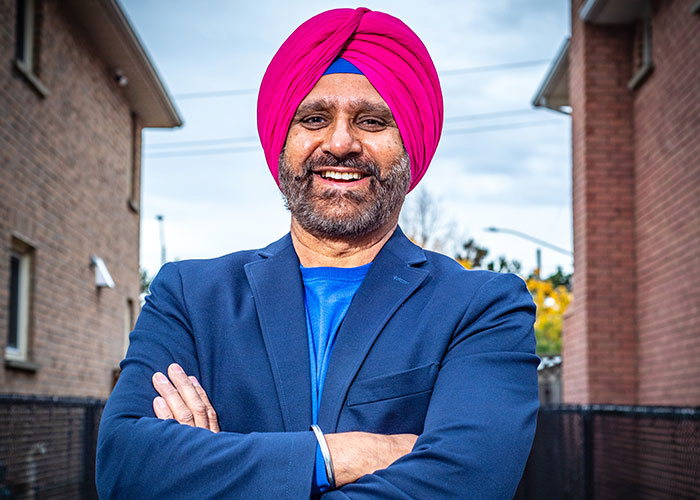
Every time you donate, we ask about where you may have previously lived or travelled. This is because the places you’ve lived in and travelled to can expose you to different infections that may be passed on to others through blood. (You can see our travel page for full details.)
In 2020, we made important updates affecting those who have spent time in areas where medications to prevent malaria are recommended. If your stay in one of those areas was less than six months, you only need to wait three months to donate whole blood or platelets. And if your stay was less than one day, you may be able to donate sooner.
Those who travel very often to affected areas, or for longer periods, may wish to donate plasma instead. The process to make medications from plasma removes the malaria parasite, so even long-term stays don’t affect eligibility. The only wait to donate is the 21-day period that applies to all donors after time abroad that is outside the 50 U.S. states and continental Europe (see our travel page for details).
You can also donate plasma after a malaria infection (starting six months after recovery). Unfortunately, people who have had malaria are not eligible to donate whole blood or platelets.
Learn more about malaria and blood and plasma donation.
3. Some gay, bisexual and other men who have sex with men are now eligible to donate
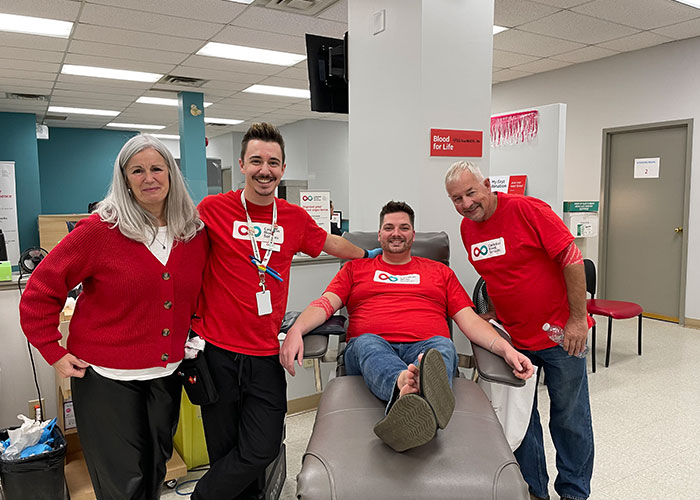
In September 2022, screening questions specific to sexually active gay, bisexual and other men who have sex with men were removed from our donor questionnaire. Instead, all who wish to donate are now asked the same questions about sexual history.
Because of this change, more gay, bisexual and other men who have sex with men who could not previously donate became eligible. Learn more about sexual behaviour-based screening.
4. Most prescribed medications are not a barrier to donating
Additionally, even if a particular medication was the cause to stop donating previously, you may be eligible today because of changes in medication-related criteria.
Check out the “medications” section of our ABCs of eligibility to learn more, and to see a list of commonly prescribed medications that are acceptable when donating blood or plasma.
5. Many cancer survivors can donate blood, plasma and platelets
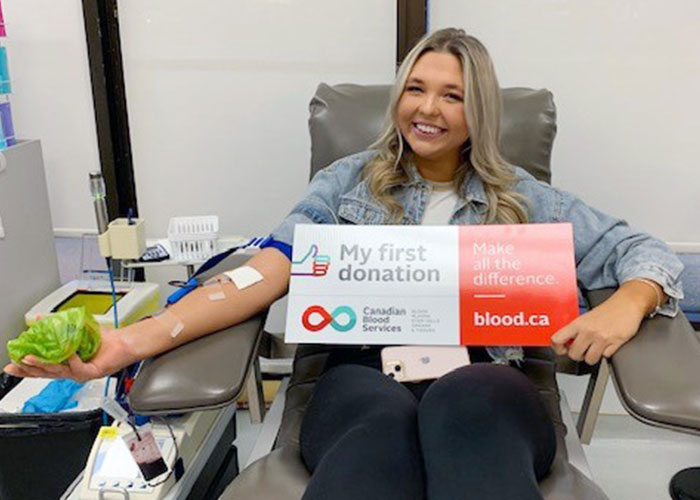
At one time, people were not eligible to donate after cancer diagnosis and treatment.
Today, however, survivors of most types of cancer can be eligible to donate one year after their treatment is complete and they are cancer free. (An earlier change, in July 2016, had permitted donation after five years). Check out the “cancer” section of our ABCs of eligibility to learn more.
6. Have a tattoo? You can still donate!
We welcome donors with ink all the time. But you do have to wait three (3) months after getting a new tattoo (including microblading and permanent makeup) to ensure complete healing before returning to donate.
There is also a three-month wait to donate after a body piercing to ensure complete healing.
7. There is no upper age limit for donating blood, plasma and platelets
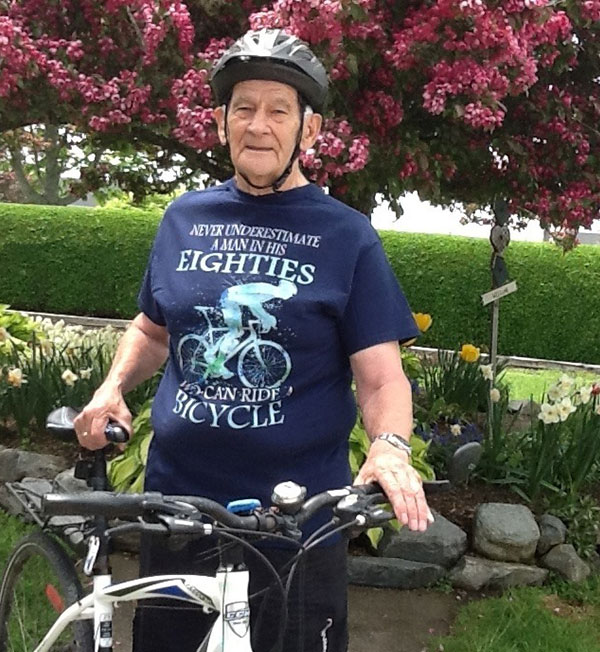
Anyone aged 17 years or older may be eligible to donate. The upper age limit was removed in 2016. See “age” in our ABCs of eligibility for more details.
8. Cannabis users can still donate
Cannabis use doesn’t make you ineligible to donate blood or plasma, even if you use it often. However, donors must not be intoxicated at their donation appointment, as this prevents us from obtaining informed consent for blood donation.
9. You may be eligible to donate even if you have had heart trouble
After treatment for heart conditions such as a heart attack, you may be eligible to donate. You can call 1 888 2 DONATE (1-888-236-6283) to discuss your condition.
10. There’s no wait to donate after getting a flu shot
It’s true that after some vaccines, there is a wait to donate blood or plasma. But with many, including the flu shot, you can be eligible to donate blood or plasma the very same day. See “vaccines” in our ABCs of eligibility for the details and wait times after receiving live attenuated vaccines.
Ready to become one of the 450 new donors we need to join Canada’s Lifeline daily? Let’s get Canada’s blood pumping! Book now at blood.ca or by using the GiveBlood app. If you have tried donating previously and been found ineligible, please give us a call first at 1 888 2 DONATE (1-888-236-6283). You can also explore all ways to give. Together, we are Canada’s Lifeline.
NOTE: Earlier versions of this article were published in January 2023 and November 2023. All donor eligibility information in this revised article is current as of the date of publication. For the very latest information please consult our ABCs of eligibility page or call 1 888 2 DONATE.
